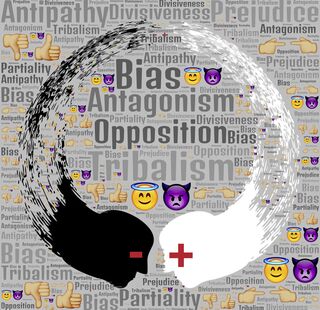Politicians often use various tactics to win votes during election campaigning. Some of these include exploiting the popularity of the party and the leader, projecting themselves as protectors of religious identity, and forming alliances with other parties. Political actors are often driven by the motivation to improve society by leading their respective countries in a certain direction.
However, in most democracies, politics is holistic as it involves both political actors as well as citizens who play an equally important role in electing politicians in positions of power. Therefore, resolving societal issues becomes a collective goal. A question of how citizens and politicians form important political decisions comes to light. The field of political psychology includes various approaches to answer the same.

One route is the cognitive approach, which studies mental mechanisms like perception and biases to understand political behavior.
Political cognition is a relatively new field that involves applying concepts of cognitive psychology, such as biases, heuristics, and information processing, to evaluate political phenomena like voter choice, party choice, policy formation, and ideological inclination. It is interesting to see how these cognitive mechanisms manifest across different political cultures that are determined by the governance of that nation and the social fabric of the society.
There are various forms of government, such as democracy, monarchy, and autocracies. Countries like India and South Africa are multiparty and parliamentary democracies. These countries witness significant political behavior where politicians of the incumbent government draft major policies and these policies are debated thoroughly by the opposition.
As a result of this political system, it is clear that politicians play a vital role in impacting society. When there is a significant gap between politicians’ decisions and citizens’ needs, there can be dangerous consequences for democracy. Hence, it is necessary to understand the cognitive dynamics of people in power and citizens because of their direct impact on policy-making.
Cognitive biases are errors in thinking patterns that deviate from rational thinking. These biases can often influence decisions in life, such as investing in a scheme just because of its popularity. Politics involves core group behavior that includes citizens and candidates taking rigid sides concerning their political parties. Some cognitive biases frequently measured concerning political behavior are bandwagon effect, confirmation bias, in-group favoritism, and negativity bias.
For instance, a study assessed cognitive biases concerning political choices and political ideology amongst members of far left-wing and far right-wing Indian political parties. Results showed that members of political parties exhibited these four biases to win elections. Hence, biased processing plays a role in political decision-making amongst people with certain political affiliations.

Other research highlights the relationship between ideological orientation and cognitive resources like short attention span, limited information processing, and mental rigidity. Certain ideological orientations, such as conservatism or right-leaning attitudes, have been associated with reduced strategic information processing and aversive attitudes towards social-risk taking.
Other political attitudes, such as a strong sense of nationalism, are also associated with lower scores on memory-related tasks and cognitive flexibility (ability to adapt to new information). These findings indicate new developments within the field of political cognition. However, scholars have presented counter findings, which show that not just extreme right-leaning orientation but left-leaning extremist attitudes are also linked with lower performance on cognitive tasks.
These findings are crucial to understanding political decision-making's belief systems and cognitive aspects. Further, this cognitive reporting can be used as an important predictor of politicians' decisions and policies to govern diverse nations. These findings further open avenues for research in the domain of political psychology, not only with the citizenry but with political representatives.
Some cross-national evidence across multiple countries has shown a significant relationship between political ideology and reactions to negative and positive news content. It has been observed that most research studies in political cognition have emphasized western political cultures. Hence, to arrive at more definitive conclusions, a substantial amount of work needs to be done in this direction by expanding the scholarly work to different political cultures and exploring cross-cultural similarities concerning cognitive mechanisms underlying political decision-making.
By Dhruv Beri, Junior Research Assistant at the Department of Psychology at Monk Prayogshala, India.
"behavior" - Google News
July 16, 2022 at 09:59PM
https://ift.tt/PYDEVgG
Cognitive Perspective of Political Behavior - Psychology Today
"behavior" - Google News
https://ift.tt/PvL5Krx
Bagikan Berita Ini














0 Response to "Cognitive Perspective of Political Behavior - Psychology Today"
Post a Comment